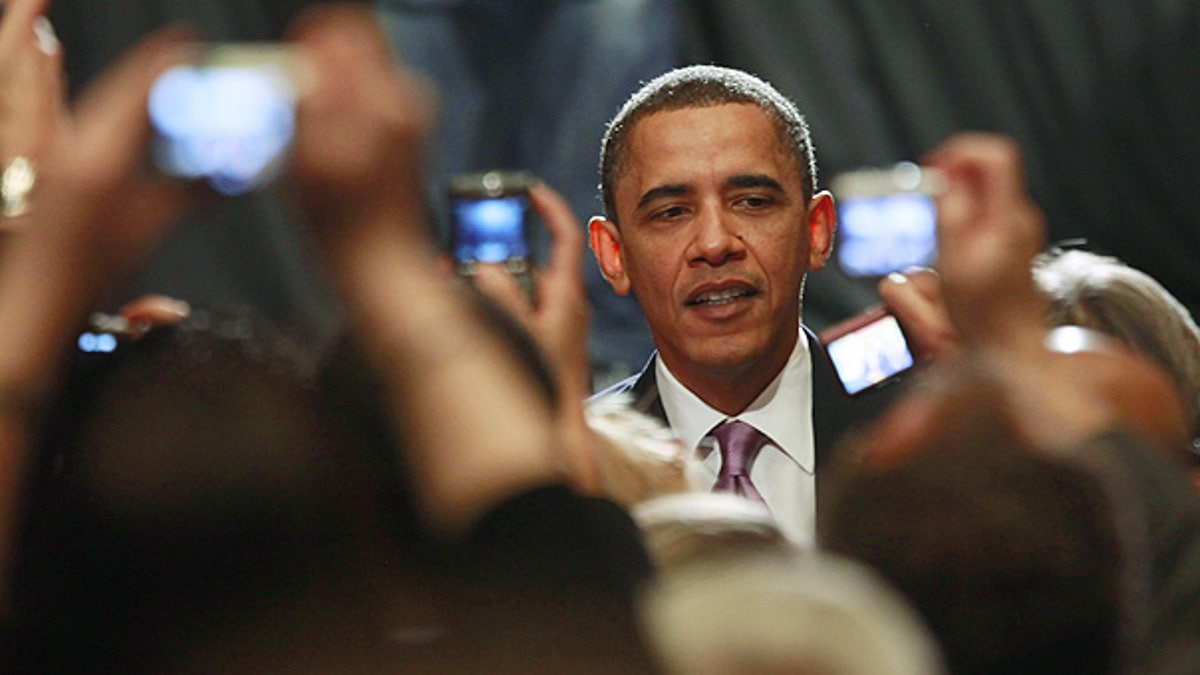
Mar. 30: President Barack Obama shakes hands after signing the Health Care and Education Reconciliation Act in Alexandria, Va. (AP)
President Obama will rewrite America’s policy on nuclear weapons next week, heralding further reductions in the U.S. stockpile and giving a pledge not to develop new systems.
After a review of the nation’s nuclear weapons arsenal that has involved, among others, the Pentagon, the Department of Energy and the intelligence services, as well as the White House, Obama is expected to reject the doctrine on nuclear weapons — the “nuclear posture” — adopted by George W. Bush, which included the possibility of the United States launching an attack on a non-nuclear state.
The Obama Administration has come under pressure from arms control analysts to redefine the circumstances in which the U.S. might consider using nuclear weapons, and to state beyond doubt that the justification for keeping them is purely as a deterrent.
After the president’s speech in Prague last April, when he laid out his personal vision of a world without nuclear weapons, the U.S. has been carrying out a review of its nuclear posture and the conclusions are due to be published in a declassified version early next week — before Obama flies back to Prague to sign the new Strategic Arms Reduction Treaty (START) with President Medvedev of Russia on April 8.
President Bush tried but failed to persuade Congress to finance a new program to develop more advanced “bunker-busting” nuclear bombs, as well as to design new atomic warheads. Now Obama is expected to rule out the development of new weapons systems — despite reservations from the military, which is mindful that Russia and China are modernising and expanding their nuclear forces respectively. He will also drop the notion, espoused by his predecessor, that nuclear warheads can be deployed in certain circumstances; for example, if another country resorts to attacking U.S. forces with chemical or biological weapons.
Daryl Kimball, executive director of the Arms Control Association in Washington, said that if Obama redefined nuclear arms as purely weapons of deterrence, it would “eliminate the number of potential targets the U.S. military think they need to hit”. It would also reduce the number of nuclear weapons the U.S. believes it needs, he said, which could bring the total well below the 1,550 strategic warheads agreed under the new Start treaty announced last week.












































